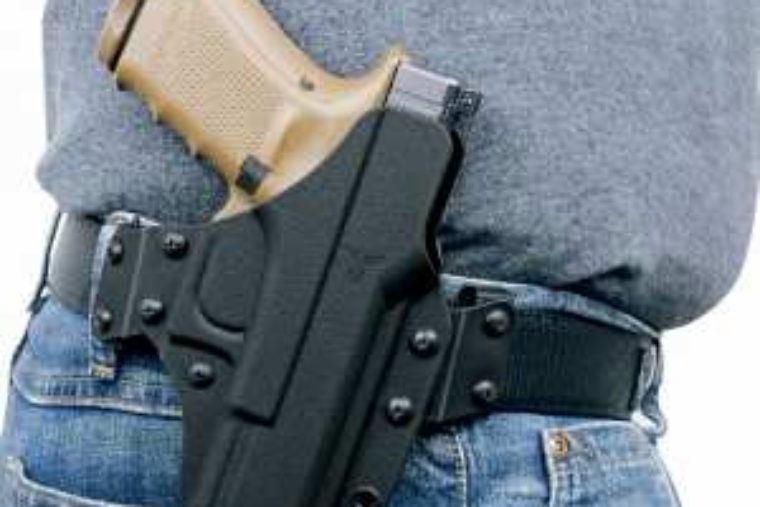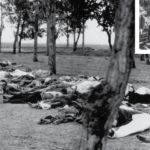In a victory for Second and Fourth amendment rights, the Indiana Supreme Court ruled this week that public possession of a handgun is not enough, by itself, to justify stopping and questioning someone. That conclusion is consistent with what the U.S. Supreme Court has said about the “reasonable suspicion” that police need to detain people.
The case, Pinner v. Indiana, began with a call to Inidianapolis police by a taxi driver who reported that “a black male wearing a blue jacket,” accompanied by a “black female with blonde hair,” had dropped a gun as he was getting out of the cab. The driver said he had been afraid that he was about to be robbed, although the passenger never actually threatened him. Based on that report, two police officers accosted Thomas Pinner as he was sitting on a bench inside a Studio Movie Grill and asked him if he was carrying a gun. When he said no, one of the officers ordered him to “stand up and keep his hands up,” which revealed the butt of a gun hanging from the front pocket of Pinner’s pants. The police arrested Pinner and charged him with carrying a gun without a license, a misdemeanor that was elevated to a felony because Pinner had a felony record, meaning he was not allowed to own a gun at all.
While Pinner undeniably broke the law, the question was whether the officers had reasonable grounds to think he had, as required by Terry v. Ohio. In that 1968 case, the U.S. Supreme Court said the Fourth Amendment allows police to temporarily detain someone if they reasonably suspect “criminal activity may be afoot.” But while the Indianapolis officers may have reasonably suspected, based on the cab driver’s report and description, that Pinner was carrying a gun, they had no evidence he was doing so illegally. “Other than the taxi driver’s claims of being fearful because he had a seen an individual matching Pinner’s description ‘drop a handgun,'” the Indiana Supreme Court notes, “there is no evidence in the record from which an inference of criminal activity can be drawn.”
The court compares stopping Pinner to see if he had a carry permit to stopping a motorist to see if he has a driver’s license. In the 1979 case Delaware v. Prouse, the U.S. Supreme Court said “stopping an automobile and detaining the driver in order to check his driver’s license and the registration of the automobile are unreasonable under the Fourth Amendment” unless “there is at least articulable and reasonable suspicion that a motorist is unlicensed or that an automobile is not registered, or that either the vehicle or an occupant is otherwise subject to seizure for violation of law.”
by Jacob Sullum



